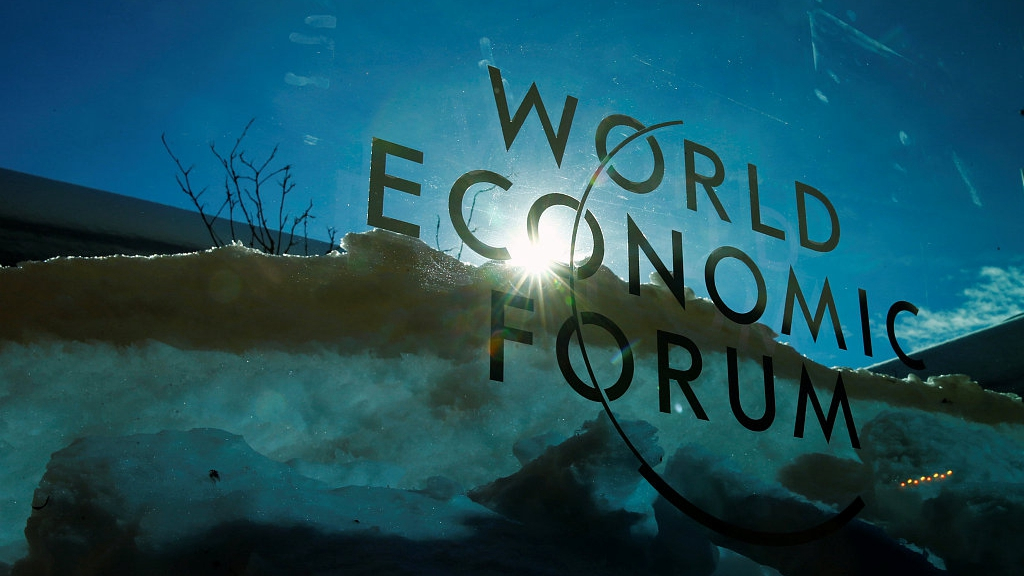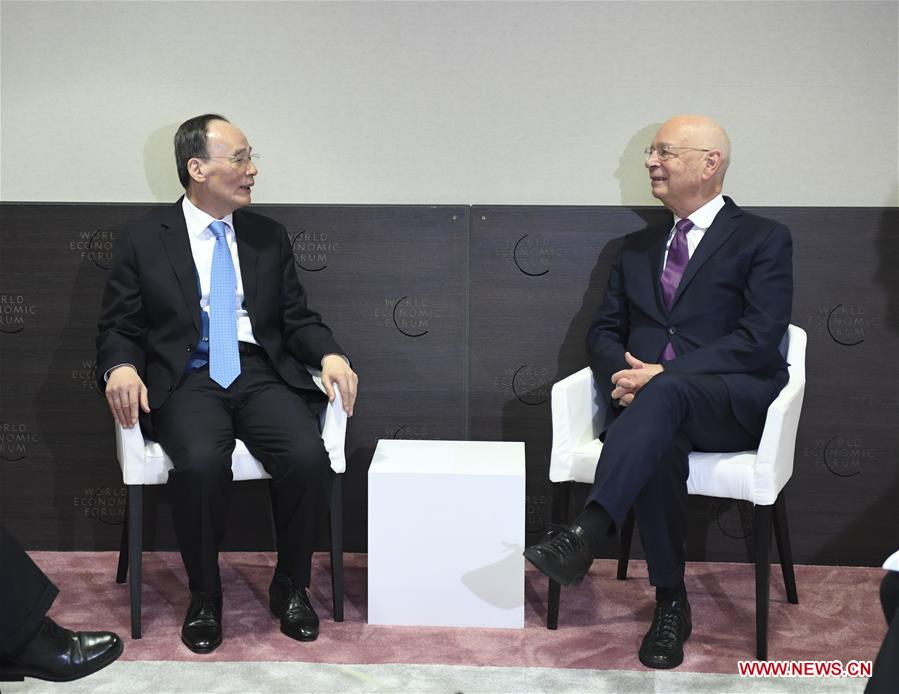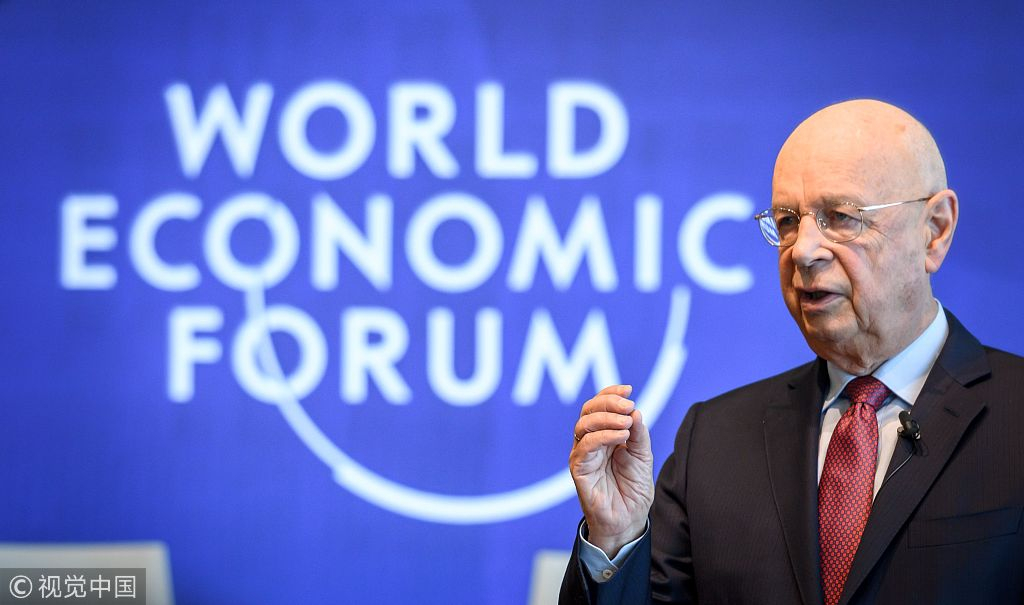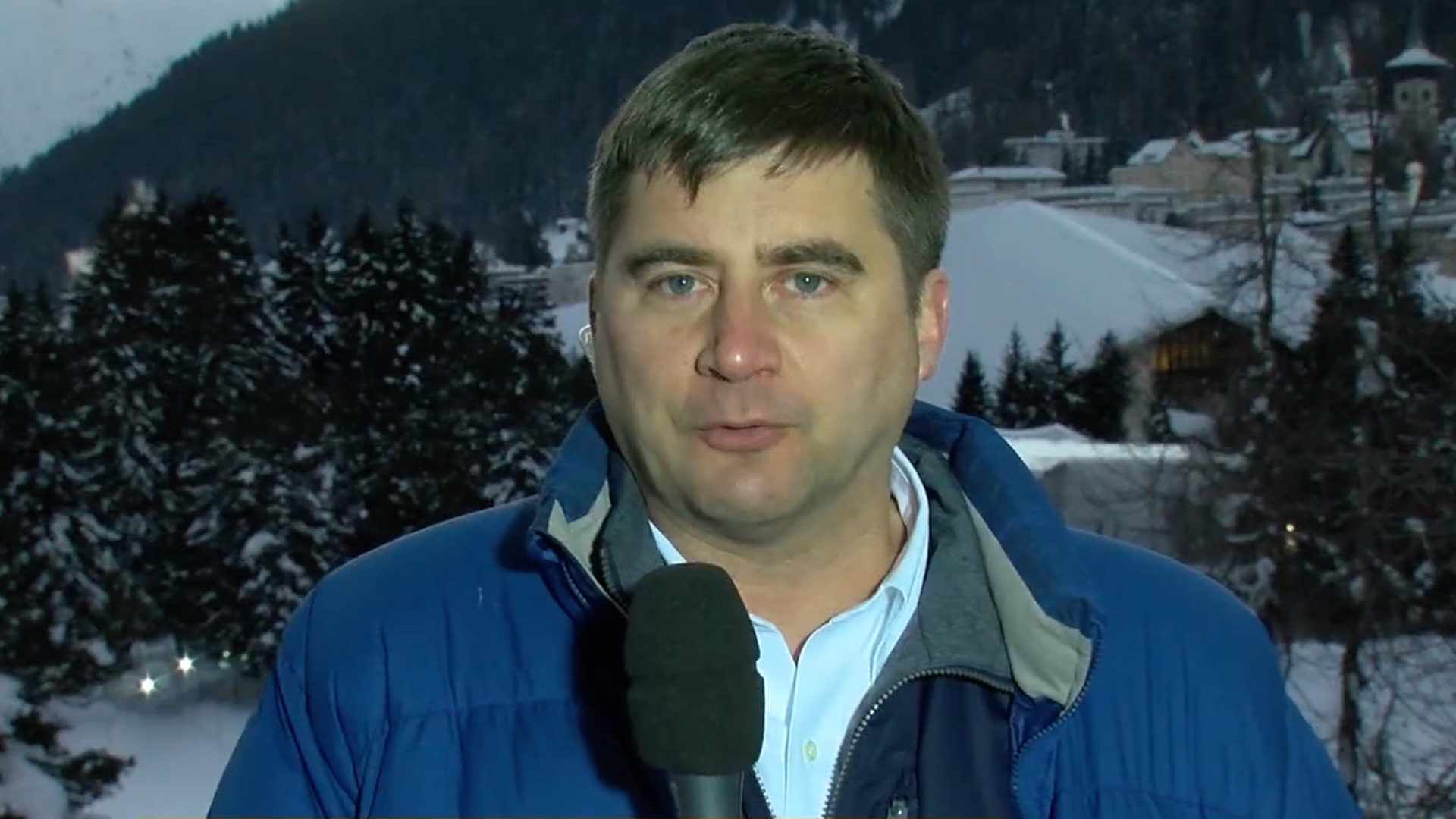
TV Show
16:39, 29-Jan-2019
Is the globalization in retreat?
The Heat

Is there a “silicon curtain” between San Francisco and Shenzhen? The trade dispute between the U.S. and China overshadowed the World Economic Forum, yet the primary theme for this year's Davos Forum was globalization. Other major global issues including climate change were also on the agenda.
Despite the division of economic views around the world, Jeremy Jurgens, the Chief Information Officer of World Economic Forum, believes this year's Davos has been the best he has ever experienced. Globalization 4.0 agenda kept going and a whole spectrum of other topics, such as trade, environment, inequality, and technology was discussed.
However, uncertainty is the overall impression from the world leaders on the next stage world economy. Both Chinese Vice President Wang Qishan and Chair of the International Monetary Fund, Christine Lagarde expressed their assessment of a slowing-down yet still growing economy.
Wang Qishan, in his dedication to the forum, tried to explain to the world what China has been doing over the 40 years of reform and opening-up. Tian Wei, host of CGTN's World Insight, analyzes his speech as an introduction of China's mentality of development – history is the reference and inspiration for future in Chinese philosophy.
For the past 200 years, China had never been the strongest country in the world, and the desire for a better life is the engine of growth in China.

Chinese Vice President Wang Qishan (L) meets with World Economic Forum (WEF) Founder and Executive Chairman Klaus Schwab during the 2019 Annual Meeting of the World Economic Forum in Davos, Switzerland, January 25, 2019. /Xinhua News Photo
Chinese Vice President Wang Qishan (L) meets with World Economic Forum (WEF) Founder and Executive Chairman Klaus Schwab during the 2019 Annual Meeting of the World Economic Forum in Davos, Switzerland, January 25, 2019. /Xinhua News Photo
Christine Lagarde asserts that the world economy is growing more slowly, but the recession is not coming. The risks are rising. Shihoko Goto, the Senior Associate of the Asia Program at Wilson Center, emphasizes on the two most tremendous challenges to the world economy.
The first and foremost challenge is the tensed trade relations between the countries, especially between the U.S. and China and the spillover effects that the trade disputes may bring. The second risk is much more of a fundamental problem on global governance. There is a rise in economic nationalism and a wave in populist politics.
Saruhan Haitipoglu, the CEO of Business Environment Risk Intelligence and CGTN's global economics analyst, indicates that the world economy has turned inward since Donald Trump was elected as the U.S. president. Globalization brought a rapid development for the lower income groups, but also increased the divergence of income within a country.
Dealing with the income inequality problem, China commits to “make the pie bigger”. Tian Wei interprets Wang Qishan's speech as pursuing further development to offset the imbalance.
As long as everyone gets a bigger piece of their pie, the imbalance problem will be solved. What China suggested in Davos, is a different path other than the traditional nationalist view of income inequality.

Founder and Executive Chairman of the World Economic Forum Klaus Schwab addresses a press conference ahead of the 2019 edition of the annual meeting of the World Economic Forum in Geneva, January 15, 2019. /VCG Photo
Founder and Executive Chairman of the World Economic Forum Klaus Schwab addresses a press conference ahead of the 2019 edition of the annual meeting of the World Economic Forum in Geneva, January 15, 2019. /VCG Photo
Looking forward to the future development, we are witnessing a battle over the 5G standards between the U.S. and China. This reflects that governments are taking technology as part of its national interest.
Shihoko takes the example of China and U.S. trade dispute and claims that besides the trade deficit, the rules of future technology consists the other conflictual point. Conflicts and competition emerge along with the determination of technology rule-maker in the future.
Data is the new oil. However, the rules in the data age are yet to be set. Countries have different ideas over essential topics such as data privacy and data security. Therefore, this field calls for greater cooperation between the nations, and Davos serves a perfect platform for the private sector speaks to the public sector on these topics.
Apart from that, climate change is another major topic that was discussed in Davos. But are we losing the race against climate change? Jeremy believes that multilateralism is the key to solve the problem. Not a single country or organization is able to reverse the situation. The climate issue should be addressed among all states through formal and informal discussion.
01:54

Great progress this year is that the businesses are increasingly aware of the environmental impact. Every enterprise nowadays realizes that an increase in temperature would have influenced their business performance, and they recognize what they need to do to address that.
Though the talks had a negative background that the U.S. is pulling out of the Paris Agreement, business leaders and policymakers inject a greater positive stimulation towards more discussions and more acts.
What Davos has witnessed is alternative ways that are emerging to fill in the blanks of the dysfunctional international institutions. The divisions in the world are not happening.
Though we see a political retreat on globalization, the private stakeholders, the international organizations, and multinational corporations join their efforts in global governance.
The Heat with Anand Naidoo is a 30-minute political talk show on CGTN. It airs weekdays at 7:00 a.m. BJT and 6:00 p.m. Eastern in the United States.
(If you want to contribute and have specific expertise, please contact us at opinions@cgtn.com.)

SITEMAP
Copyright © 2018 CGTN. Beijing ICP prepared NO.16065310-3
Copyright © 2018 CGTN. Beijing ICP prepared NO.16065310-3